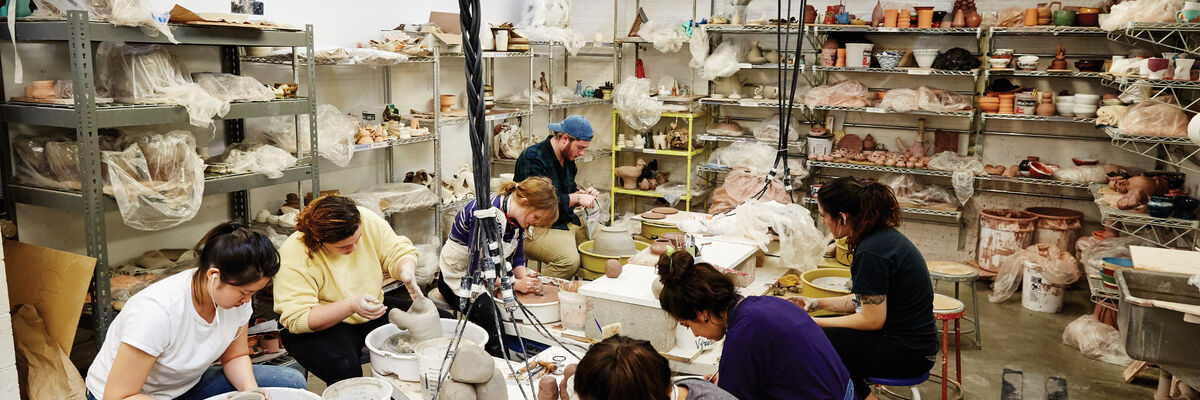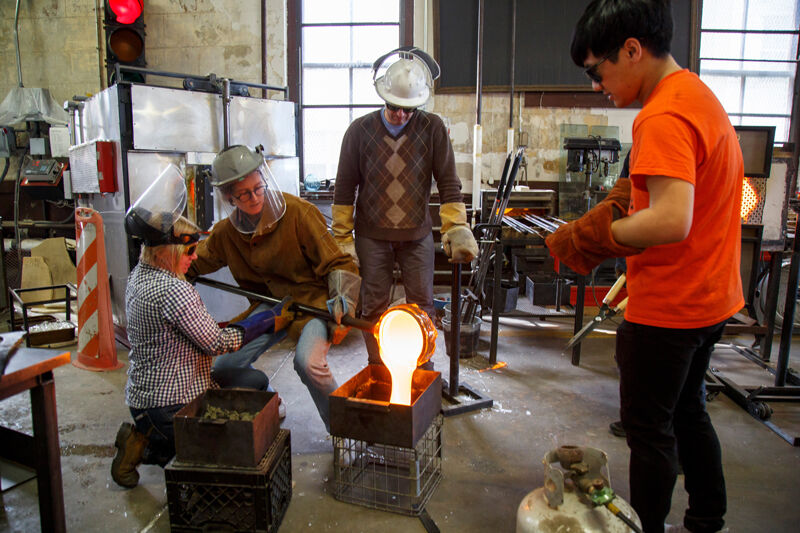
Glassmaking Goes Experimental

by Raksha Thakur (MA 2019)
During the spring 2018 semester, Professor Christine Tarkowski (Fiber and Material Studies) joined master glass artists Aaron Wolf-Boze, Pearl Dick, and assistant Risa Recio (MFA 2016) of Firehouse Art Studios to teach the course Hot Projects: Glass Production Workshop. The students worked in collaborative production teams, using methods such as hot ladle casting, basic molds using loose and resin bonded sand, and mastered cold shop tools. Hot glass production techniques like hand blowing, hot casting, mold blowing, and cold blowing were explored.
The aim of the course was to use glass as an experimental medium, and many SAIC students like Delia Pelli were drawn to the course because of the experimental aspect. Pelli who has been using prisms and mirrors in her work enjoys the manipulation of light she can achieve with glass. Other students, like Samuel Park whose primary medium is neon, originally took the class because they wanted to learn to make glass tubes. After being exposed to the possibilities within glass, Park grew to love glass. “This is a lot cooler and weirder than I thought it would be,” he says.
Tarkowski explains that the course taught students to “use the heat of it, the viscosity of it, the translucency, the speed, the choreography, the group." These are not typically applied to glass blowing. She adds that the course is “not about making cups, it’s about generating ideas through discovery,” and “coming at it from a very experimental process.” The process outstripped the functional aspect of glass. This instilled a discipline driven by a conceptual understanding focused solely on the work. “There’s a point at which you can’t know really whether you’re good or not at it; you just hope that the glass is going to work with you on any given day,” says Pelli. “It forces you to just work and push forward.”
